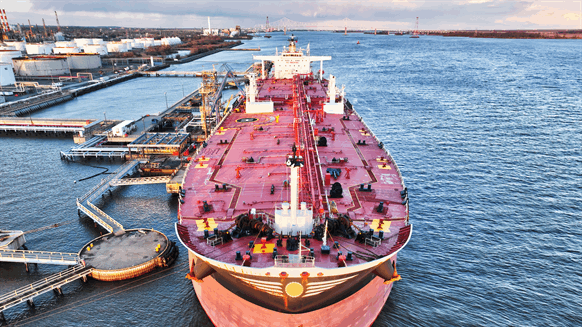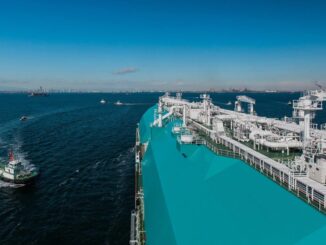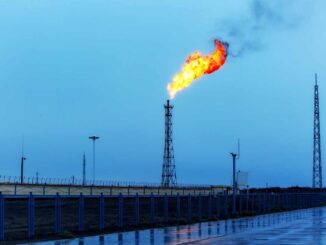
Yinson Holdings Bhd., a Malaysian firm making vessels for offshore oil and gas production, expects to deliver close to $1 billion in core earnings as soon as 2025 amid strong demand, its top executive said.
“We have never been in such a good position to negotiate contracts,” Chief Executive Officer Lim Chern Yuan said in an interview at his office in Singapore last week. “With our order book, we are looking at closer to a billion dollars of Ebitda by 2025, 2026.”
Lim’s prediction is substantially above 3.26 billion ringgit ($700 million), the most optimistic forecast among the six analysts polled by Bloomberg on Yinson’s 2026 earnings before interest, taxes, depreciation and amortization. It’s also higher than 2.8 billion ringgit, the average of the six.
Vessels known as floating production storage and offloading units are key pieces of infrastructure used by energy companies for offshore oil and gas extraction and processing. Yinson, which has FPSO contracts with firms including Brazil’s state oil company Petrobras and the Angolan joint venture of energy majors BP Plc and Eni SpA, will add three new vessels in the next few years, Lim said.
The company’s order book of about 100 billion ringgit, which includes both firm contracts and options, will last for 20 years, he said, adding the firm’s backlog is the world’s second highest for FPSO companies. Lim added that the firm is focused on executing contracts, making sure that the cash flows come in and to deliver on time. “What’s limiting us is always capital and supply chain,” he said.
Beyond Carbon
Like many firms in the energy sector Yinson is moving toward a green future — and diversifying itself in the process.
Last month, the company signed a deal to secure $300 million funding from buyout firm RRJ Capital to part finance an FPSO for Eni Angola SpA that will incorporate green technologies such as hydrocarbon blanketing and carbon capture systems, as part of its goal to build a zero-emissions vessel, the CEO said at the time.
Besides FPSOs, Yinson will also have almost 500 megawatts of renewable energy generation by the end of 2023 and targets to have a gigawatt’s worth in a year or two in construction and operation, Lim said. The firm plans to have 30% of its total equity in green investments by 2030, up from 8% this year, he said. The renewable division will be profitable next year, he added.
In 2021, Yinson teamed up with an investment arm of SMRT Corp., Singapore’s public transit operator, to co-invest in driverless vehicle technology startup MooVita Pte. Backed by its Yinson GreenTech arm, its chargEV electric vehicle charging infrastructure network operates more than 350 charging stations in Malaysia and two in Singapore, according to its website. Lim said demand for EVs will increase exponentially and the company is committed to building more charging stations to support the transition.
Unlocking Value
As part of a long-term strategy to unlock value, Yinson wouldn’t rule out spinning off some of its businesses or selling a stake to bring in strategic investors to help grow the business, Lim said. At the moment, the company doesn’t have any plans to raise capital.
Yinson, which is listed on the Bursa Malaysia, has a market value of 7.2 billion ringgit. Its shares have risen 2.5% this year, outperforming the benchmark FTSE Bursa Malaysia KLCI Index, which fell 2.2% over the same period.
“We probably might invest a little bit more money in green tech,” Lim said, without giving details. “It’s something we would like to grow and build up and keep for the future, as it goes hand-in-hand with renewables,” he added.



